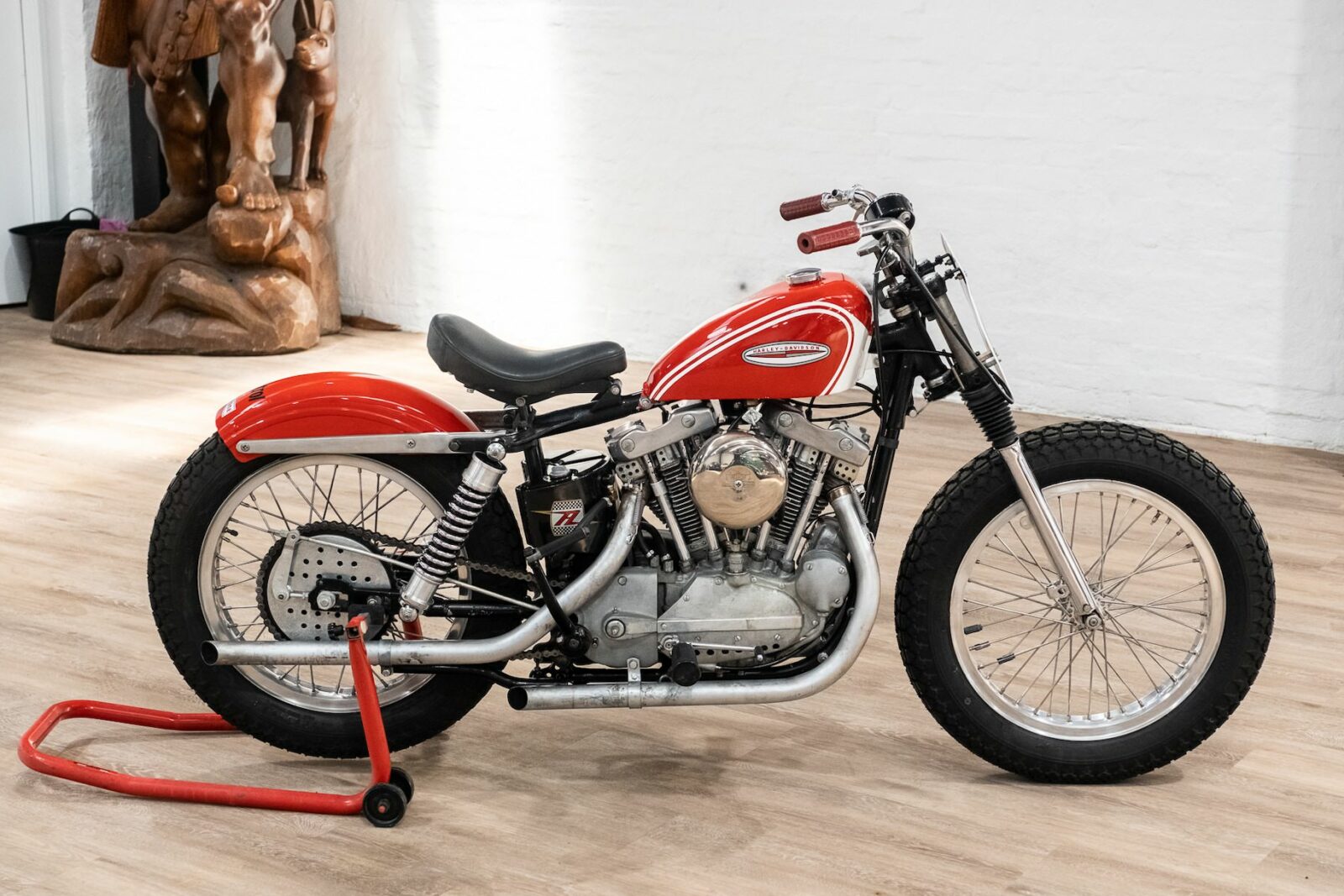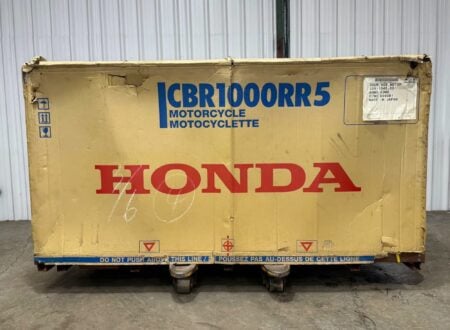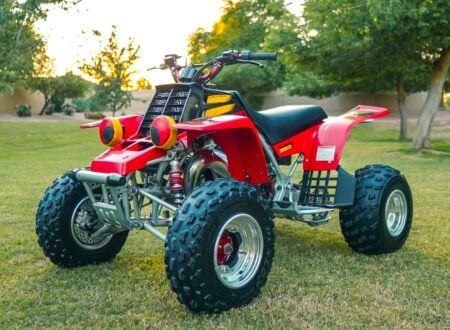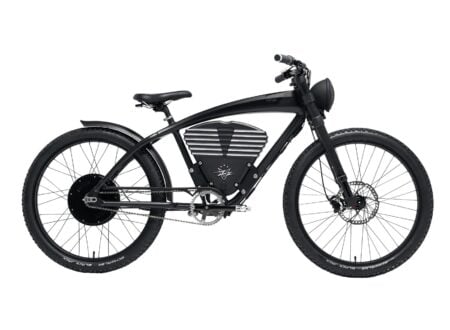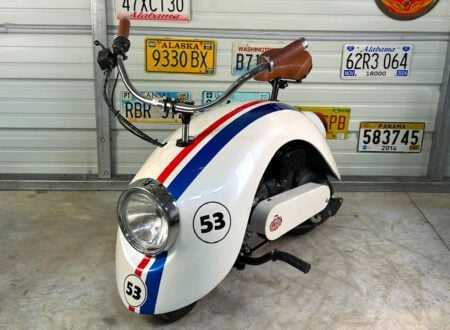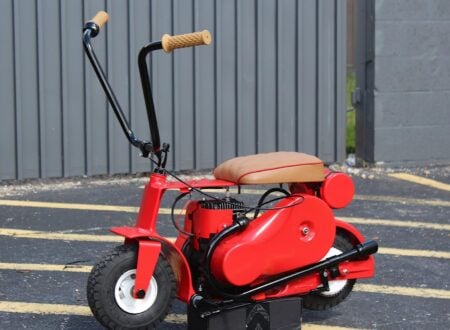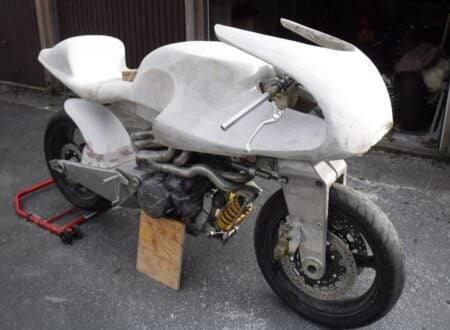This is a Harley-Davidson Sportster XLR 883, it’s one of the rarer models in the long-running Sportster family with an estimated 200-500 having been produced in total from the early 1960s until the early 1970s for AMA Grand National TT racing.
Despite looking a lot like the production Sportster of the era, the Sportster XLR 883 was never road-legal or intended for road use – it was meant for scrambles or “TT” races where the engine displacement limit was 900cc.
Fast Facts – The Harley-Davidson Sportster XLR 883
- The Harley-Davidson Sportster was first introduced in 1957 and it’s been in continuous production ever since over a series of model families right to the modern day.
- The Sportster started out essentially as an answer to the lighter weight British sporting motorcycles of the 1950s that were built by the likes of Triumph, Norton, BSA, and Matchless. These motorcycles were wildly popular in the USA at the time, and their performance was leagues ahead of most American production motorcycles.
- A number of special edition versions of the Sportster family have been built for racing over the years including the Harley-Davidson XR750 and the motorcycle you see here – the Harley-Davidson Sportster XLR 883.
- The Harley-Davidson Sportster XLR 883 was developed for TT racing with a lightweight frame, no provision for lighting for road legality, and a specially developed version of the Sportster V-twin with considerably more power.
The Harley-Davidson Sportster XLR 883
The Harley-Davidson Sportster XLR 883 first appeared early in the 1960s to meet the then-new AMA Grand National TT requirement that competing motorcycles have engine displacements no greater than 900cc, a considerable reduction from the previous 1300cc limit.
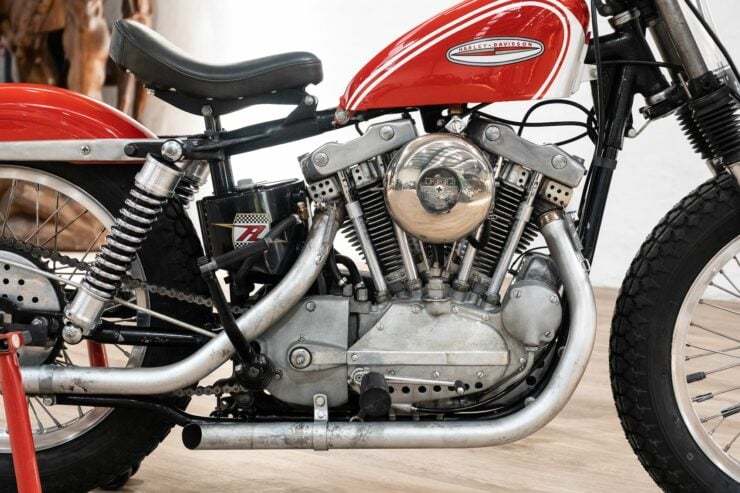

A new tubular steel frame was developed for the XLR 883 that used a higher grade of steel than the standard production frames, this allowed the wall of the tubing to be slightly thinner with no loss in strength which helped reduce weight.
The engine was completely revised for racing, the stroke was shortened and the bore widened to allow higher-RPM operation, a new high-performance cam was added and fitted the benefit of friction-reducing ball bearings.
The crankshaft was given roller bearings for additional friction reduction, custom-made connecting rods and pistons were used, and a lightweight valve train was fitted. The cylinder heads were ported and polished resulting in larger ports which were paired with larger valves, allowing for better flow.
The bike came with no lighting or other necessities for road use – they were intended to be as lightweight as possible for racing use only.
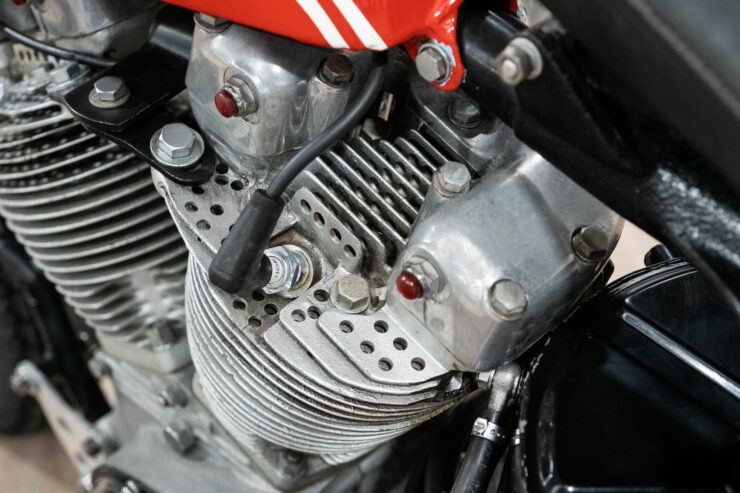

The result of all this weight loss was a curb weight of just 355 lbs (161 kgs), considerably less than the Sportster production bike. Power was similarly improved, with 70 – 90 bhp at 7,000 rpm available depending on the state of tune.
It’s believed that somewhere in the region of 200-500 were made, 200 needed to be built for homologation purposes. As is often the case with racing vehicles relatively few have survived to the modern day – their value plummeted as they were replaced with newer machinery and many ended up either crashed or scrapped.
Surviving examples are now highly collectible museum pieces and they only rarely come up for for public sale.
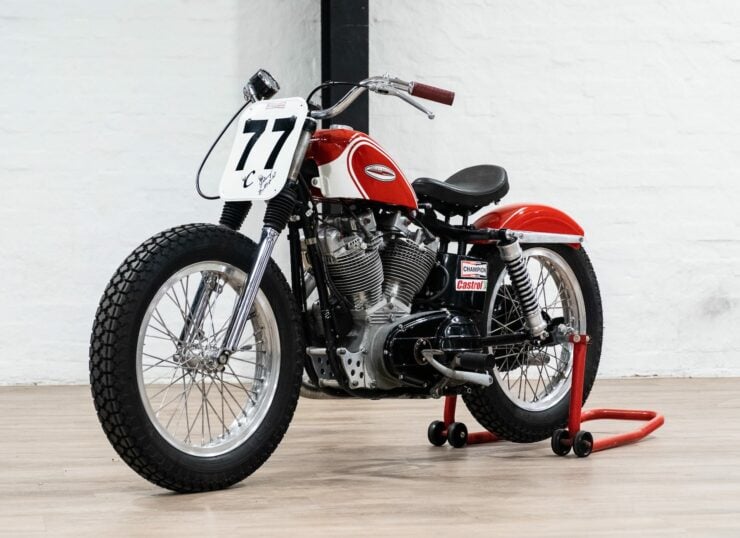

The 1961 Sportster XLR 883 Shown Here
The motorcycle you see here is a very early example of the Harley-Davidson Sportster XLR 883, it remains in original condition throughout and finished in red with white stripes. There are Harley-Davidson logos on either side of the fuel tank as well as Castrol, Coca Cola, and Firestone decals on the rear fender.
The bike still has its single Linkert carburetor and the Fairbanks-Morse magneto ignition, there’s no front brake as you would expect for a circle track racing bike, and if you look closely you’ll see that holes have been drilled in various parts of the bike for additional weight loss.
It’s now being offered for sale on Collecting Cars out of the town of Bowral in Australia, if you’d like to read more about it or place a bid you can visit the listing here.
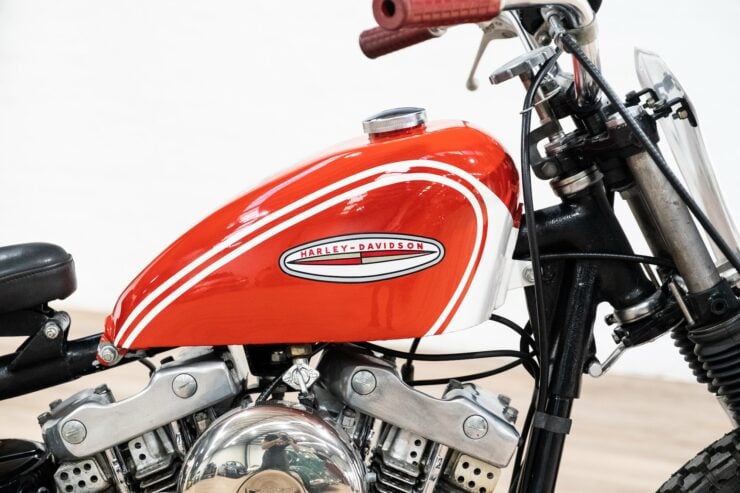
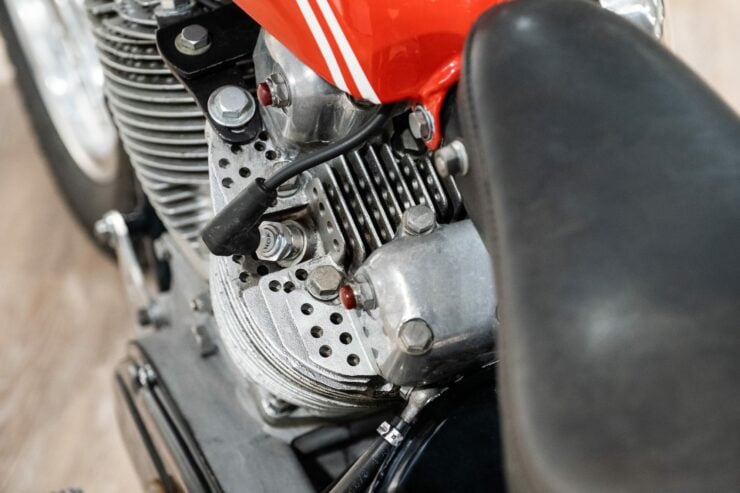
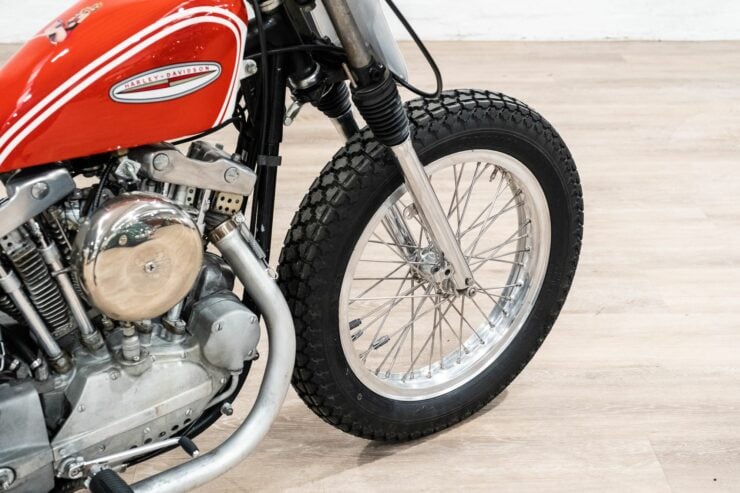
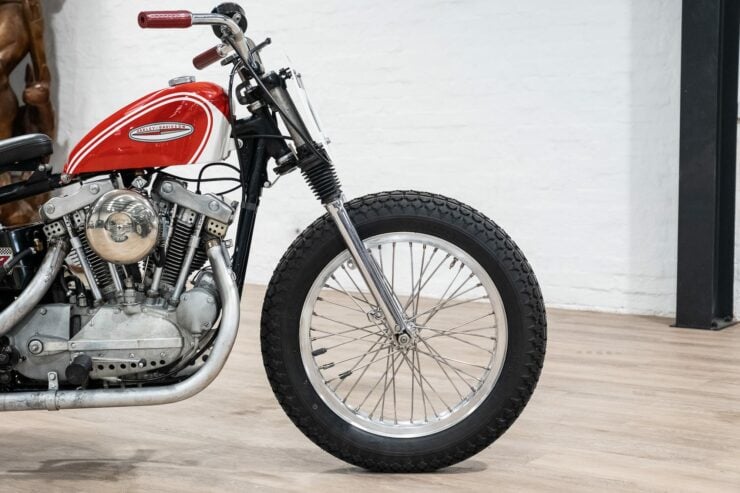
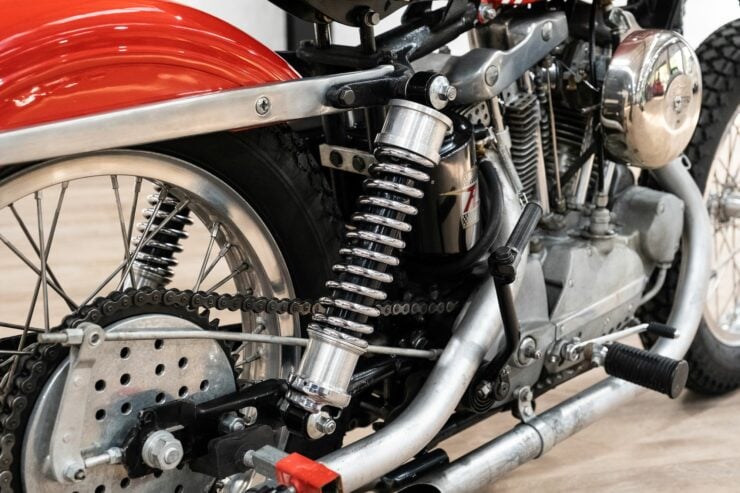
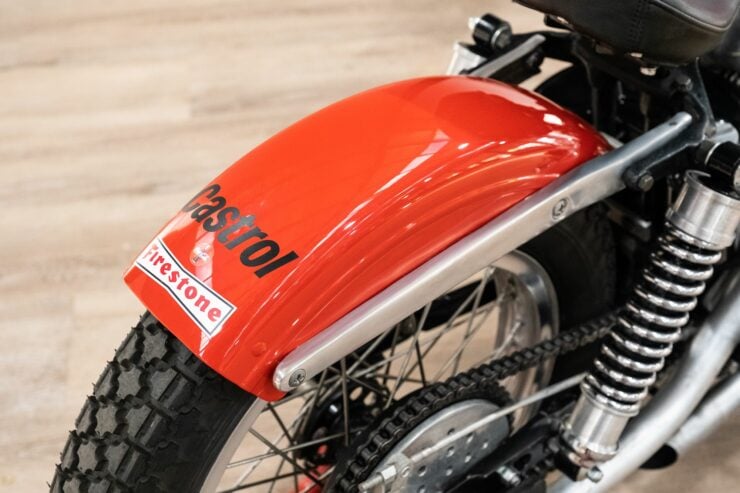
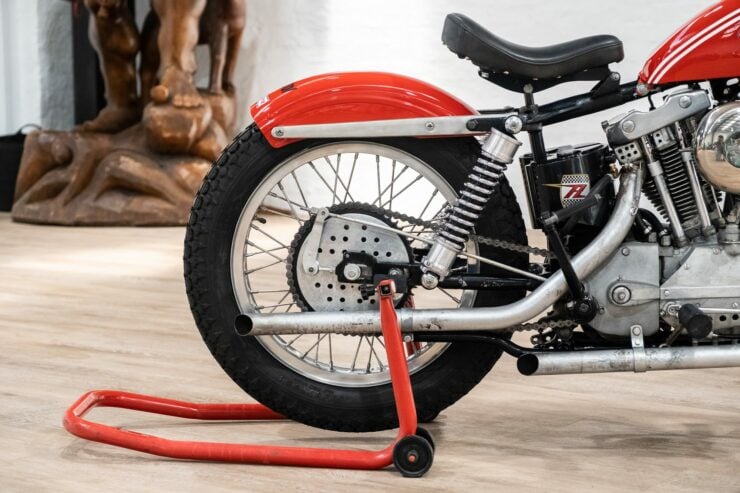
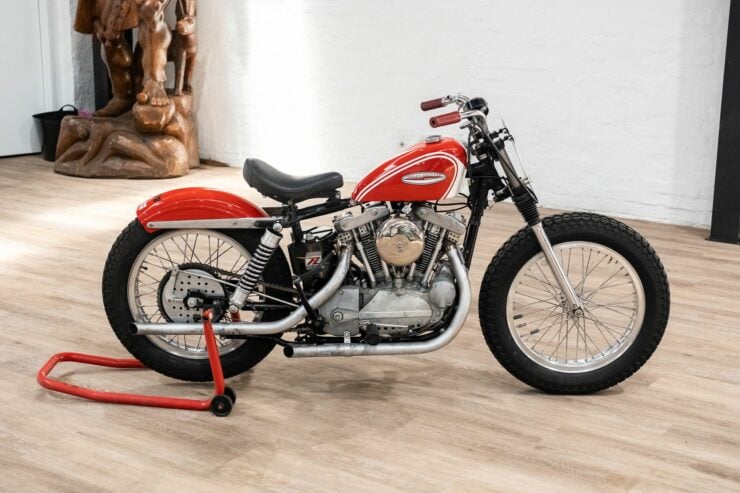
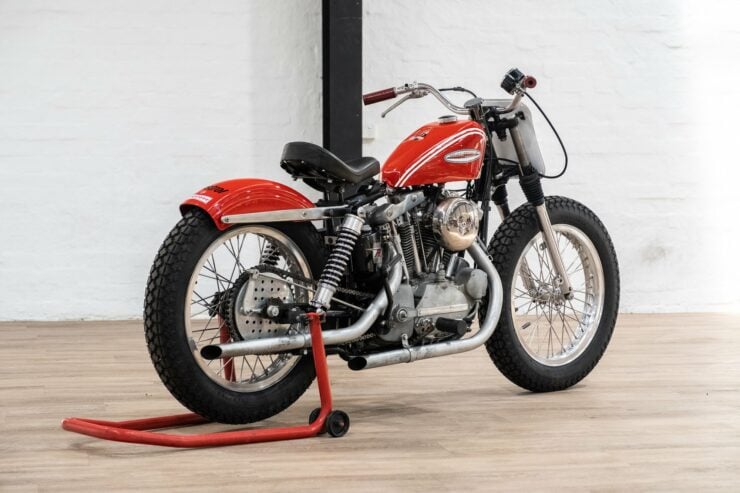
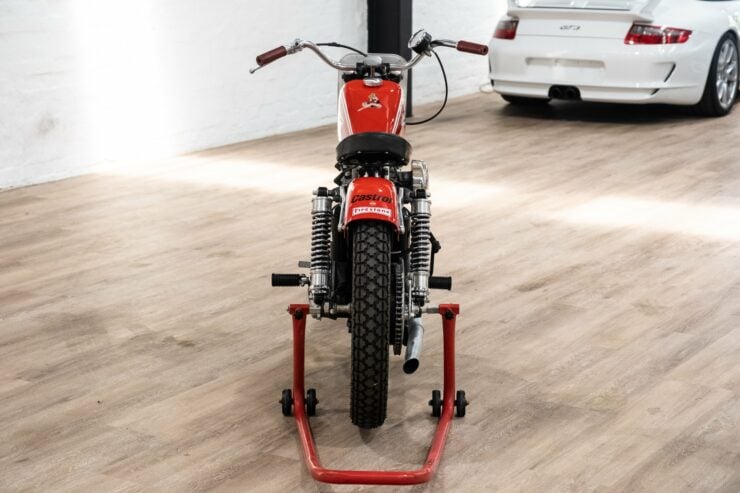
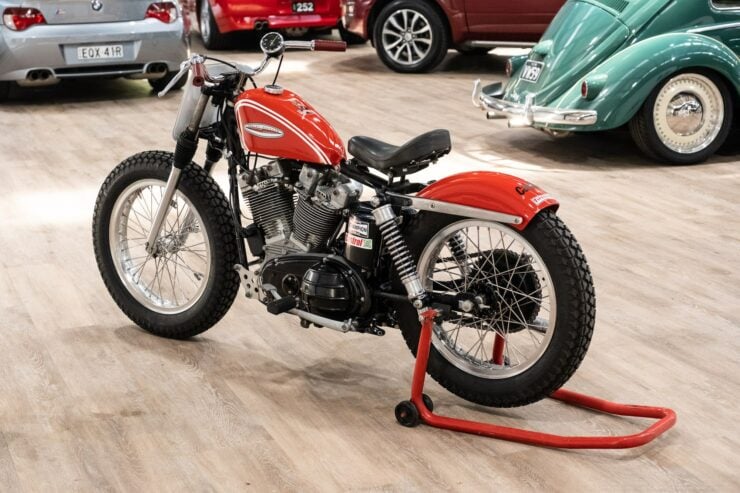
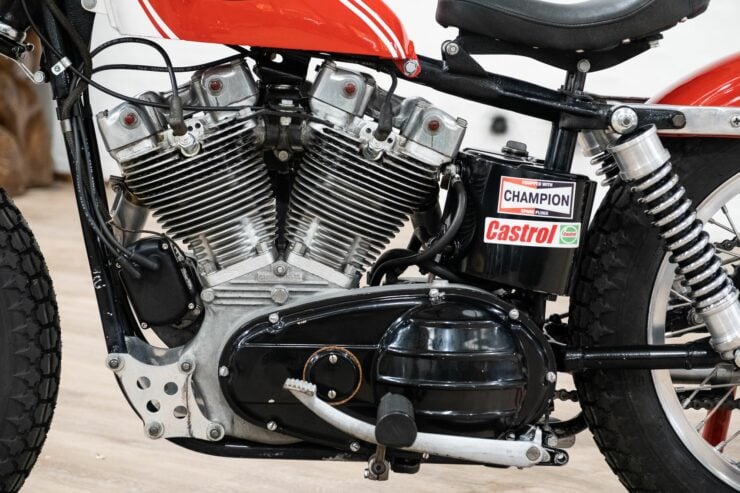
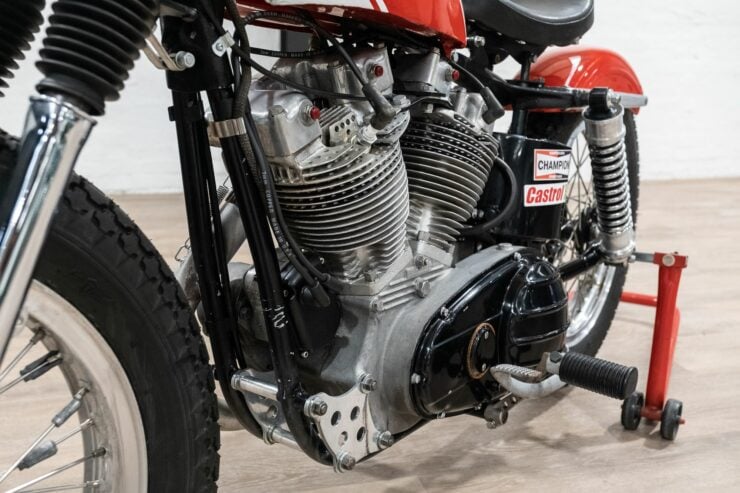
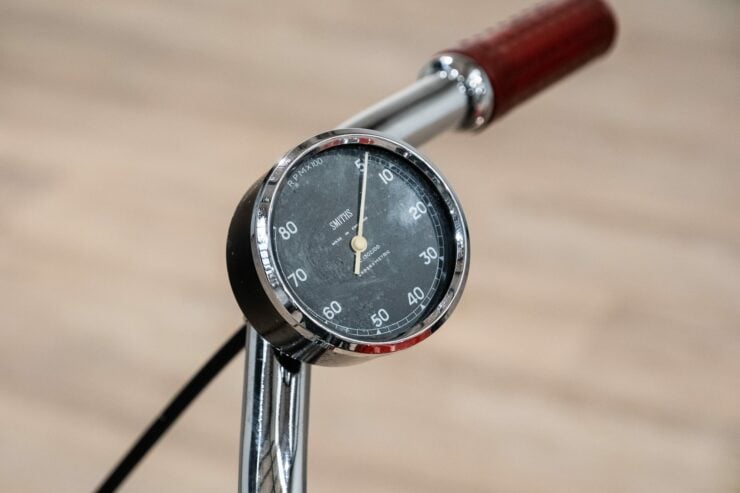
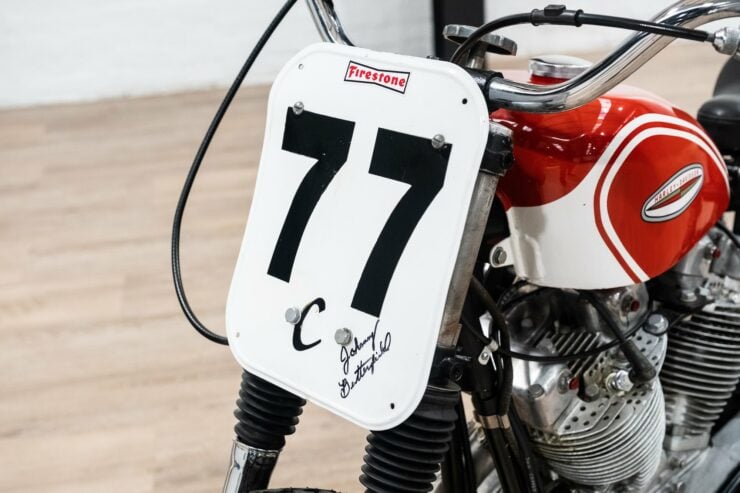
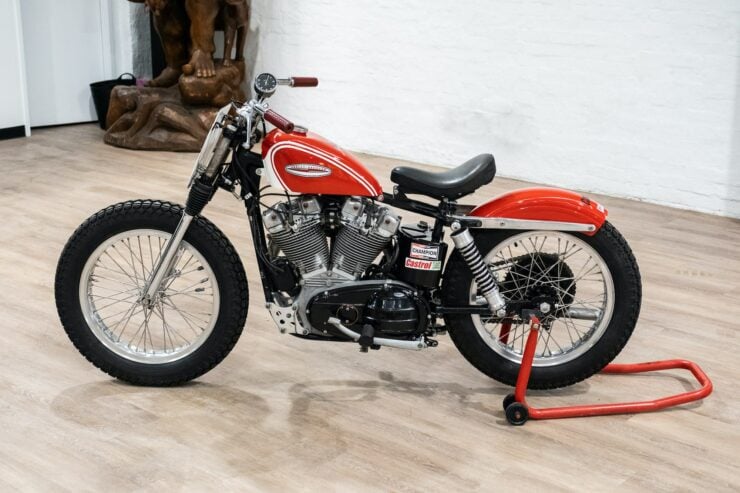
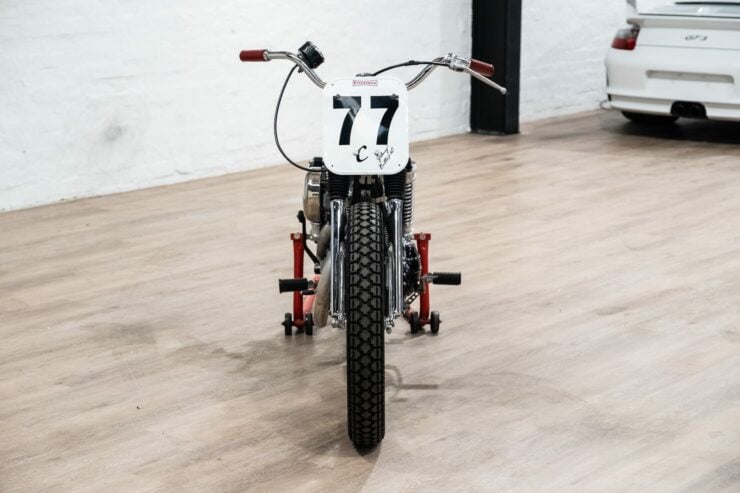
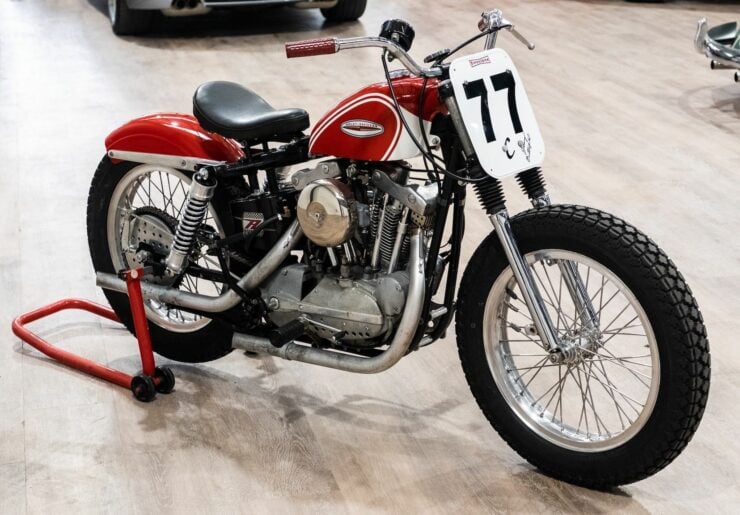
Images courtesy of Collecting Cars

